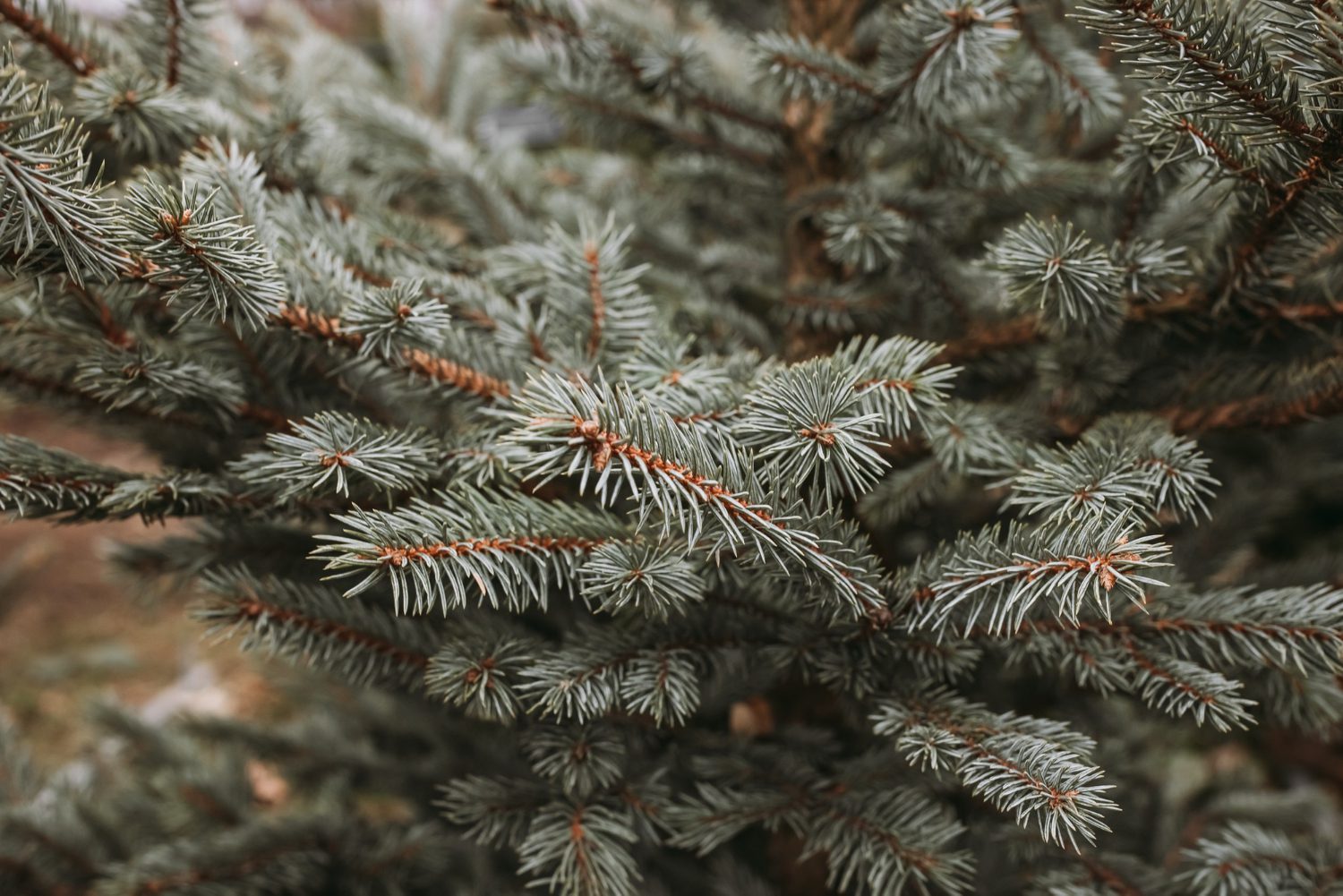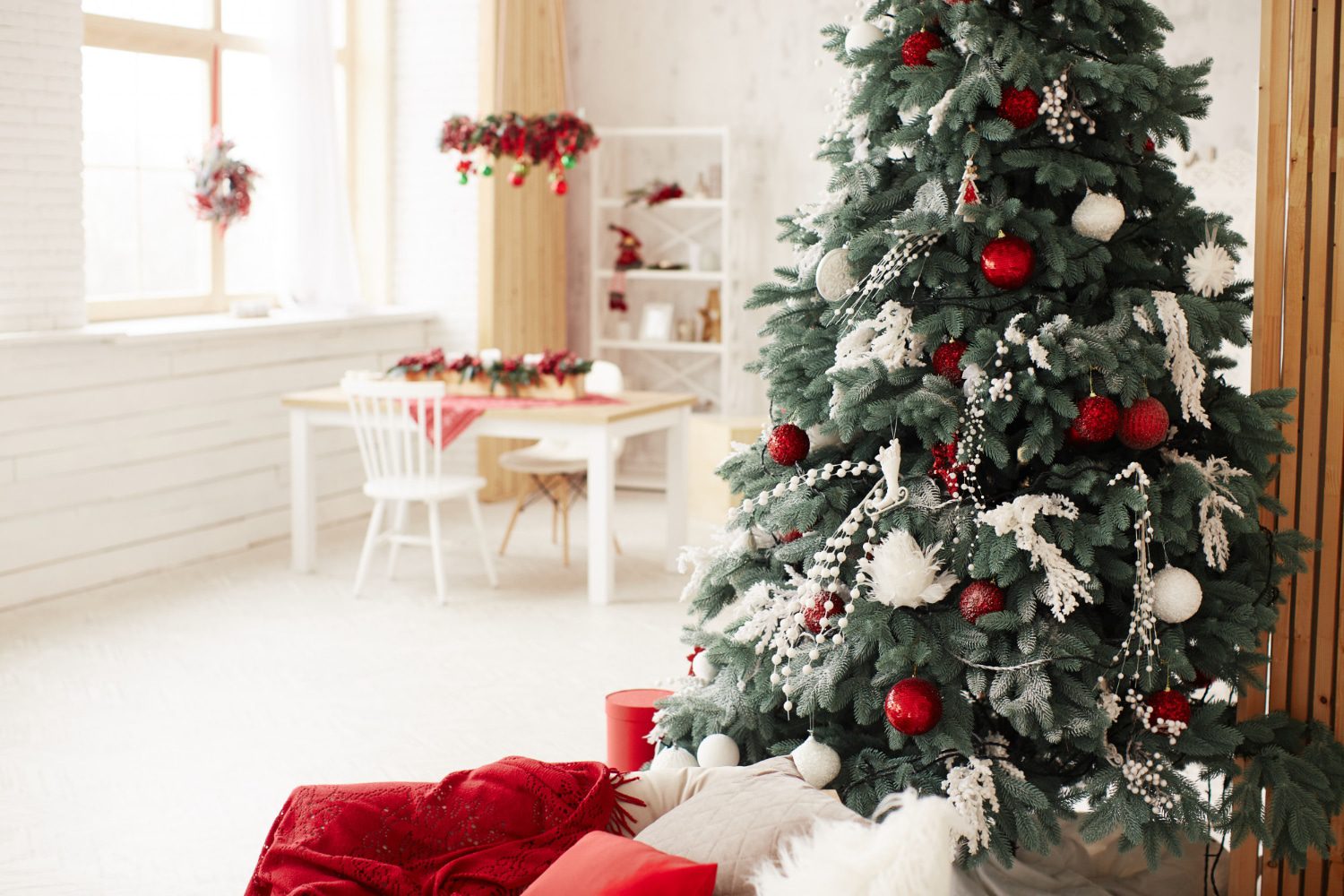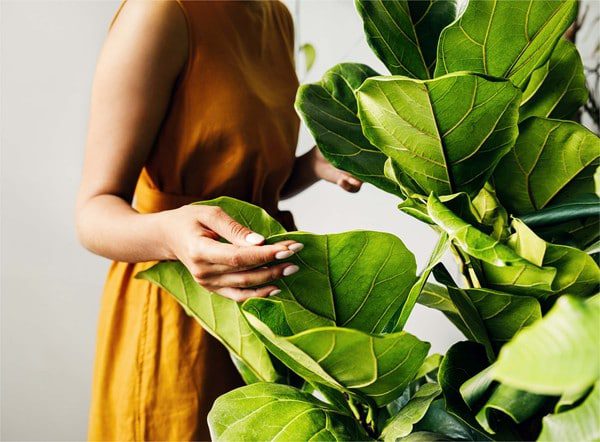
There are stockings over the fireplace, Grandma’s recipes, gatherings of relatives and friends, shopping, wrapping paper, and so much more when the Christmas season is in full swing. Of course, you want a Christmas tree you can decorate to perfection. What tree do you choose? Each year you have a choice between a real tree or an artificial one holding your ornaments and memories.
Depending on your preferences and circumstances, either can be justified. Of course, with an artificial tree, you get convenience. However, a real tree can provide additional benefits—physical and emotional—beyond being just a decoration.
Americans annually buy 20 to 25 million real Christmas trees. Is yours one of them? Let’s see what you’re getting and compare it to an artificial tree.
Artificial Trees
People choose artificial trees for several reasons. First, they are convenient. A quick trip to a local store or an online order, a little assembly time, and you have your tree. As long as you have storage space, you can use them for years. Second, they won’t aggravate specific allergies that make having a real tree difficult. Third, the wide variety in size, shape, and quality means you can find one for any space and budget. You can even get one in pink!
According to the U.S. Department of Commerce, 85%of artificial trees are made in China. Most of them consist of metal or plastic, usually PVC, which may contain hazardous lead.
Still, artificial trees remain a popular choice for many, even though other than avoiding allergies, they do not offer any health benefits.
Advantages of a Live Christmas Tree
A live Christmas tree brought into your home is much more than just a pretty base for your ornaments. It is a bit of nature, a representation of life from the outside world. Being surrounded by a natural environment has been shown to positively affect a greater sense of well-being, reduced stress and fatigue, and increased creativity. Even having a house plant or two in your home can trigger these positive effects.
The Well-Known Benefits of Houseplants
Studies show that houseplants offer many health benefits. Here are some of the findings:
- People with plants in the room may have better attention and focus than those without.
- Horticulture therapy can ease symptoms of depression, anxiety, dementia, and other mental illnesses.
- Plants may help speed recovery from illness.
- They also produce oxygen and take in carbon dioxide.
- They can contribute to improved mental health, happiness, and a stronger immune system.
And what about your real Christmas tree? Think of it as a giant house plant! It may be temporary, but it shares some of those benefits.

Something Special about Pine Trees
A study in Japan drew similar conclusions specifically about coniferous trees (they have needles instead of leaves), including pine trees. They clean the air and support our immune systems. They can also encourage a sense of peace. Another study at Kansas State University found that the appealing pine scent can help defend against sinus infections, colds, and flu.
Essential Oil
The Japan study produced evidence of even greater benefits of coniferous trees. Using essential oils diffused from trees, study participants benefited from an increased number of anti-cancer proteins and white blood cells that destroy viruses and tumors.
While many medicinal claims are associated with pine essential oil, there is not enough data to be certain of the effects. However, inhaling the strong scent of your Christmas tree can undoubtedly improve your mood and help clear your sinuses.
That Scent, Those Memories
The robust scent of a Christmas tree fills the room with a sense of freshness and nature. You may say that it smells like Christmas. It does because the sense of smell is a powerful trigger for memories. The smell of apple pie can spark a memory of your grandmother who loved to bake. The scents of coffee and bacon can bring to mind relaxing Sunday mornings in your childhood home.
This association between smell and memory (stronger than sight and memory) is so strong because, in the brain, odor information travels directly from the olfactory bulb to areas involving emotion and memory. The sense of smell is powerful in younger children, who form early associations between smells and memories that last through adulthood.
So the scent of a pine tree in your living room can bring back distinct memories of yourself as a child learning the family’s annual Christmas traditions and being awed by the magic of it all. Perhaps this is a connection you want your children to have. Positive memories like these can contribute to your emotional health.
The Remains of the Day: Recycling Your Christmas Tree
Though it will last for several years, an artificial tree will eventually need to be discarded. Unfortunately, it cannot be recycled and will sit in a landfill somewhere. A real tree, however, is a natural part of the Earth, and that is where it will ultimately return.
A real tree can be shredded for mulch or compost, nourishing other plants and trees and giving you a green thumb. Another option is to donate your tree to a zoo or animal sanctuary. As long as the tree has no pesticides, tinsel, glitter, or anything else that can harm the animals, it can provide enrichment. For example, lions and tigers at Catty Shack Ranch in Florida, for example, treat the trees like giant toys. And in Tennessee, you can donate to the Elephant Sanctuary, where an elephant will kindly eat your tree. The big cats get mental stimulation, and the elephants get a treat that provides nutrition and digestive aid. Unlike the fake trees, there are so many ways to recycle your real Christmas tree that can benefit the lives of other plants or animals.
Conclusion
With its natural pine scent, a real Christmas tree brings a bit of nature into your home. In addition to the gifts beneath its branches, your tree shares enhanced physical health and mental well-being with everyone in the house. And when the Christmas season is over, your live tree can nourish and give back to the world it came from.
Interested in more lifestyle articles? Visit us at Top Doctor Magazine.







0 Comments